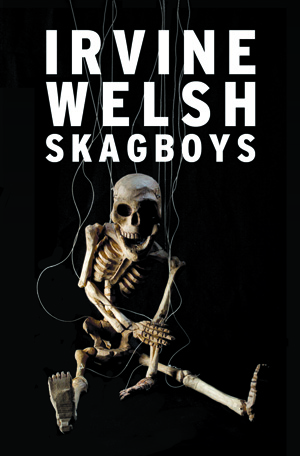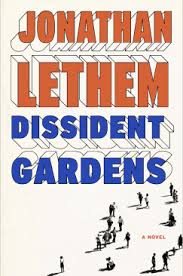In a sentence: A shapeshifter named Nimona and a mad scientist named Ballister Blackheart team up to take down their kingdom’s corrupt Institution for Law Enforcement and Heroics, a goofy premise that grows into something much darker and more awesome.
An Aye for an Eye
I’ll be honest: Skagboys by the Scottish novelist Irvine Welsh (most famous, I think, for his 1993 book Trainspotting — the one that got made into a movie with Ewan McGregor and — Welsh himself as Mikey Forrester) is the only book I’ve read for pleasure since the school year started. This is for a few reasons, the first and foremost being the mountain of work that we all know and love. Even as the bookstore cashier was ringing Skagboys up I was thinking: pleasure reading? really? when are you going to have time for that? Answer: I didn’t.
Hysterical Realist No Longer
NW
By Zadie Smith
Penguin, 401 pp.
Zadie Smith’s most recent novel, NW returns to the streets of NW London. This is the setting of her first novel and where she has lived most of her life, which she populates with characters whose colloquial British English differs greatly from her prose in diction, but not in rhythm. Her most stylistically ambitious novel, NW makes widespread use of unattributed dialogue and free, indirect speech to make the similarities in her prose more apparent. As self-described “sentimental humanist”, she does not shy away from the fact that she was born to these streets herself, not trying to hide her personal connection.
Communism, Judaism, Free Love
Dissident Gardens
By Jonathan Lethem
Doubleday, 384 pp.
Jonathan Lethem’s latest novel, Dissident Gardens, weaves together Communism, socialism, hippieism and even the Occupy movement — the threads of dissent in American culture — only to have them unravel. His characters seem unconcerned with maintaining their objective ideological identities if they appear to be at odds with their personal aspirations.




